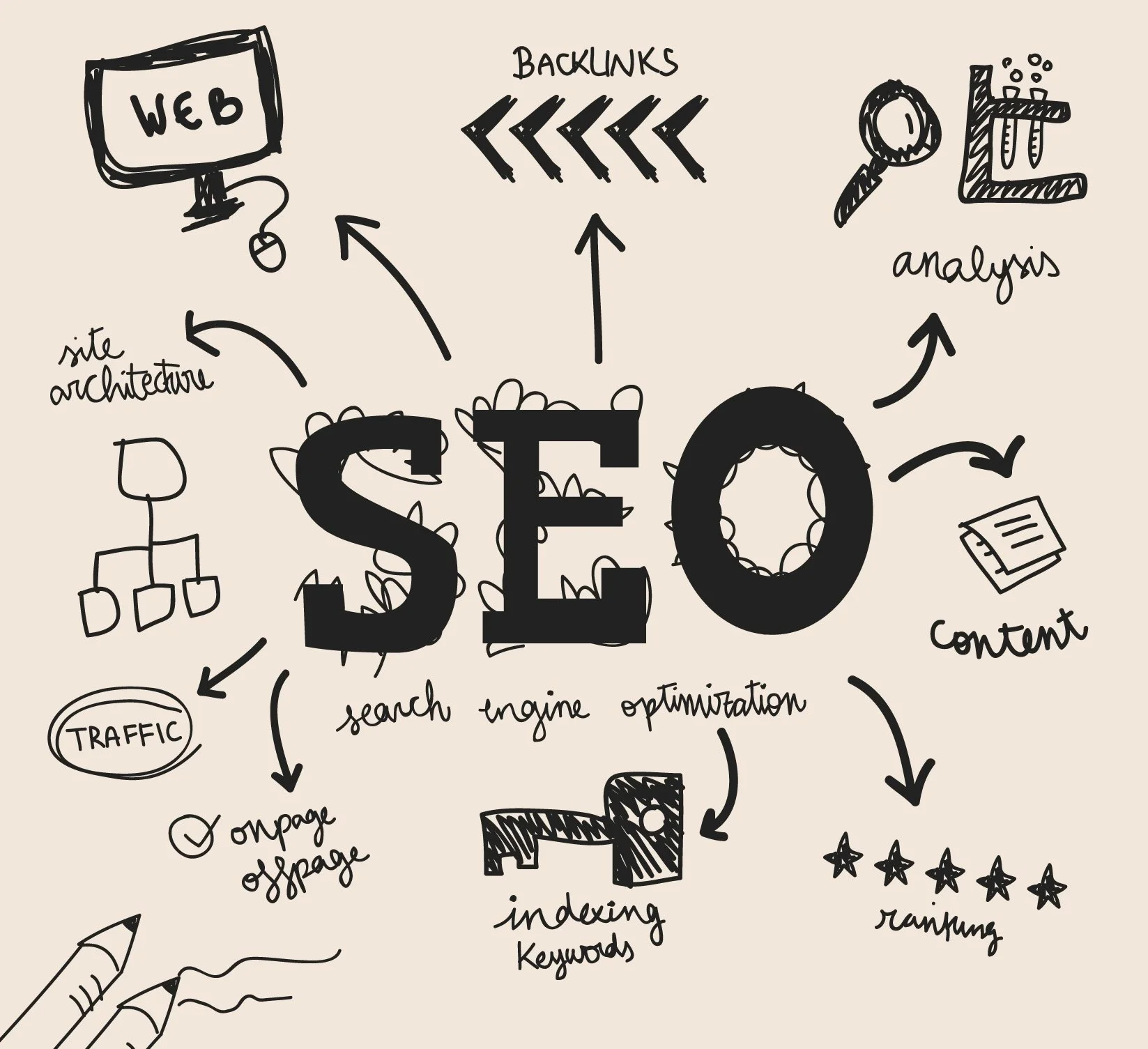What Every Growing Business Should Know About SEO
If you’re running a growing business, chances are you’ve heard the term SEO thrown around. But what exactly is it, and why does it matter for your business? Search Engine Optimization (SEO) is the art and science of improving your website’s visibility in search engines like Google. In other words, it’s how your ideal customers find you when they’re searching for products or services online.
In this article, we’ll break down the key things every growing business should know about SEO—what it is, why it matters, and how to make it work for your business.
1. SEO Is Your Online Visibility Strategy
Think of SEO as your digital storefront sign. If it’s big, bold, and clear, people will notice it. If it’s buried or broken, they’ll walk right past.
When someone searches for something related to your business—say, "best coffee shop in [your city]" or "affordable web design services"—you want your website to appear on the first page of search results. Why? Because 75% of users never scroll past the first page. Without SEO, your business risks being invisible online.
There are both technical and content components that contribute to your website’s search engine optimization.
2. SEO Is About Your Customers, Not Just Search Engines
At its core, SEO is about understanding what your customers are looking for and delivering it to them in a way that’s easy to find. This means creating content that answers their questions, solves their problems, and guides them to the next step.
Start With Keywords: What words or phrases are your customers typing into Google? Tools like Google Keyword Planner or Ubersuggest can help you find these.
Focus on User Intent: Are they looking for information, a specific product, or a local service? Match your content to what they’re searching for.
Pro Tip: Don’t "keyword stuff" your content (using the same keyword excessively). Write naturally while including keywords strategically.
3. SEO Takes Time, but the ROI Is Huge
One of the biggest misconceptions about SEO is that it’s a quick fix. In reality, SEO is a long-term investment that grows over time. Unlike paid ads, where visibility ends when you stop paying, good SEO can drive traffic for months or even years.
Short-Term Wins: Updating meta descriptions, fixing broken links, and optimizing page titles can bring quick improvements.
Long-Term Payoff: Building quality backlinks, creating authoritative content, and gaining trust with Google takes time but yields lasting results.
Pro Tip: Treat SEO like planting a garden. Water it consistently, and over time, you’ll see it flourish.
4. Local SEO Is a Game-Changer for Growing Businesses
If you’re a brick-and-mortar or local service business, local SEO is your ticket to reaching nearby customers. It’s all about making sure your business shows up when people search for things like "near me" or "[your service] in [your city]."
Claim Your Google Business Profile: This free tool lets you show up in Google Maps and local searches.
Encourage Reviews: Positive reviews on platforms like Google or Yelp improve your rankings.
Use Location-Based Keywords: Include your city or neighborhood in your content and meta descriptions.
5. Mobile Optimization Is Non-Negotiable
More than 60% of all web searches now happen on mobile devices. If your website isn’t mobile-friendly, you’re not just missing out on traffic—you’re likely getting penalized by Google.
Responsive Design: Your website should look and function well on all devices, from phones to desktops.
Fast Loading Speed: A slow site frustrates users and hurts your SEO rankings. Tools like Google PageSpeed Insights can help you identify and fix issues.
Pro Tip: Optimize images and minimize large files to speed up your site.
6. Content Is Still King
SEO and content go hand in hand. Search engines prioritize websites that provide valuable, relevant content to users.
Create High-Quality Content: Write blogs, guides, or FAQs that answer your audience’s most pressing questions.
Consistency Matters: Regularly update your website with fresh content to show search engines that your site is active.
Use Visuals Wisely: Include images, videos, or infographics, but don’t forget to optimize them with descriptive alt text.
Pro Tip: Evergreen content—topics that remain relevant over time—can drive consistent traffic to your site.
7. Analytics Are Your Best Friend
How do you know if your SEO efforts are paying off? By tracking your performance with analytics tools.
Google Analytics: Monitor website traffic, user behavior, and conversions.
Google Search Console: See how your site is performing in search results and fix technical issues.
Keyword Rankings: Use tools like SEMrush or Ahrefs to track your position for target keywords.
Pro Tip: Set specific goals, like increasing organic traffic by 20% in six months, and use data to adjust your strategy.
8. You Don’t Have to Be an SEO Expert
SEO can feel overwhelming, especially if you’re new to it. But the good news is, you don’t have to do it all at once—or do it alone.
Start Small: Focus on basic improvements like optimizing page titles and descriptions.
Leverage Tools: Free tools like Yoast SEO for WordPress can guide you through on-page optimization.
Outsource When Needed: Consider hiring an SEO expert or agency for complex tasks like technical SEO or backlink building.
Final Thoughts: SEO Is the Key to Sustainable Growth
For every growing business, SEO isn’t just an option—it’s a necessity. It’s how you increase visibility, attract your ideal customers, and build long-term success online. While it may take time and effort, the rewards—consistent traffic, improved credibility, and more conversions—are well worth it.
Ready to boost your SEO game? Start with small, actionable steps and build from there. With the right strategy, your business can stand out in search results and attract the audience it deserves.
Make sure you’re on the most visited online directories with our downloadable guide - A Step-By-Step Guide to the Top 10 Online Directories Essential to Every Business.

